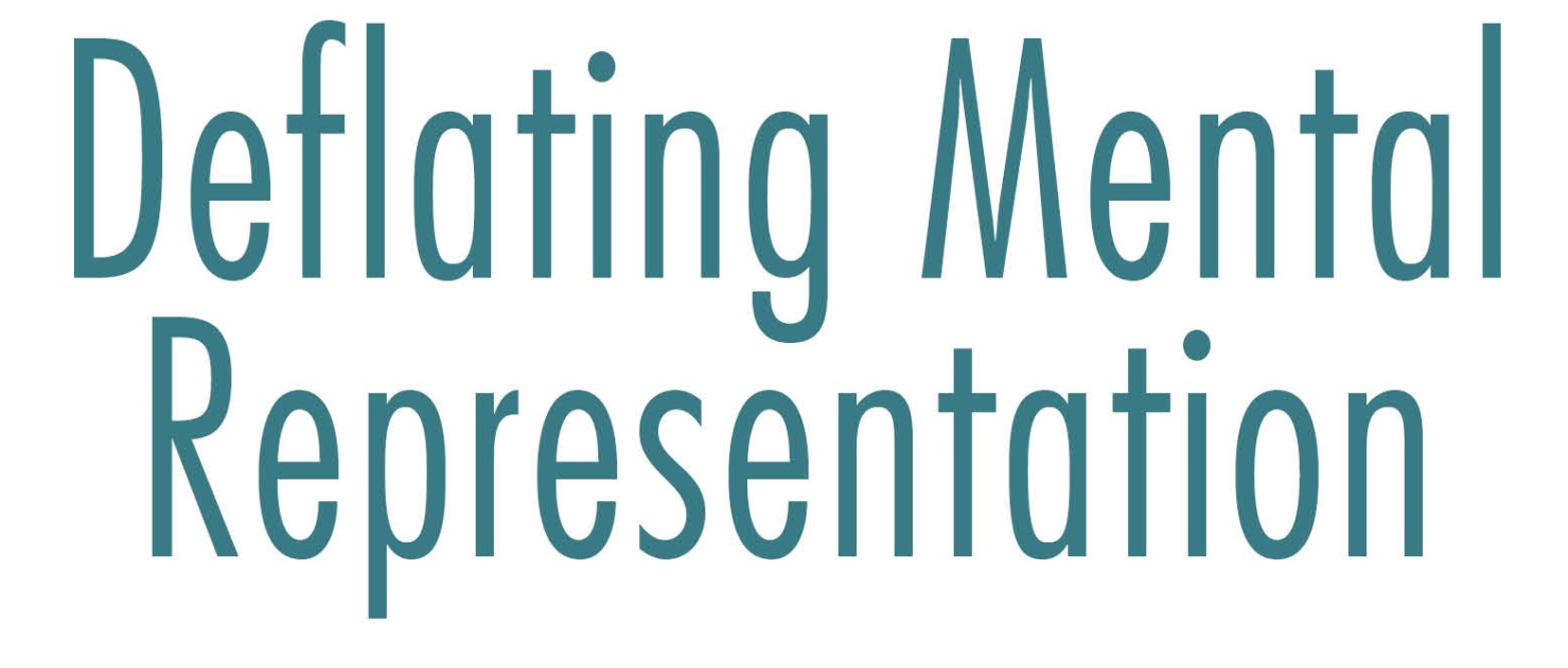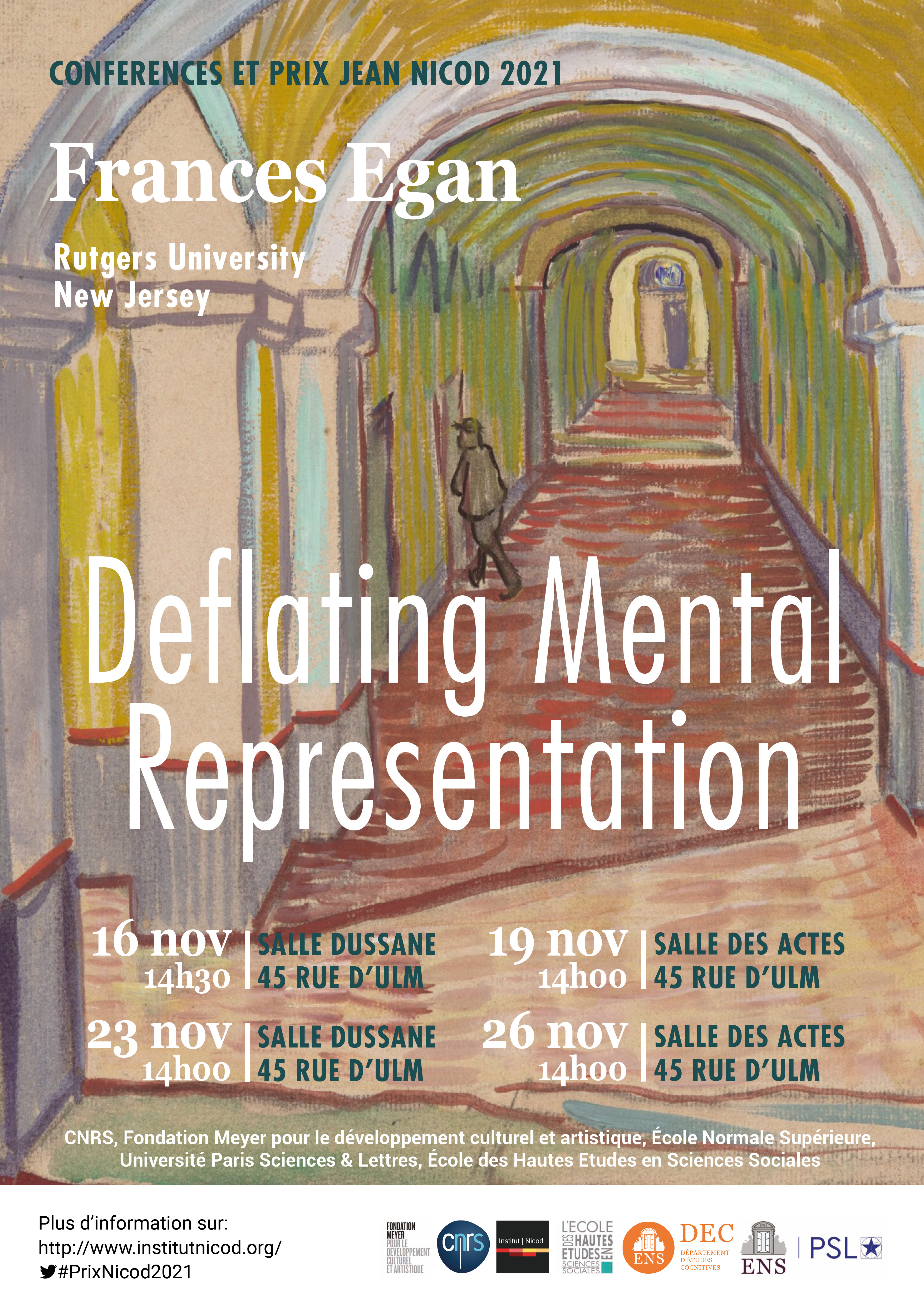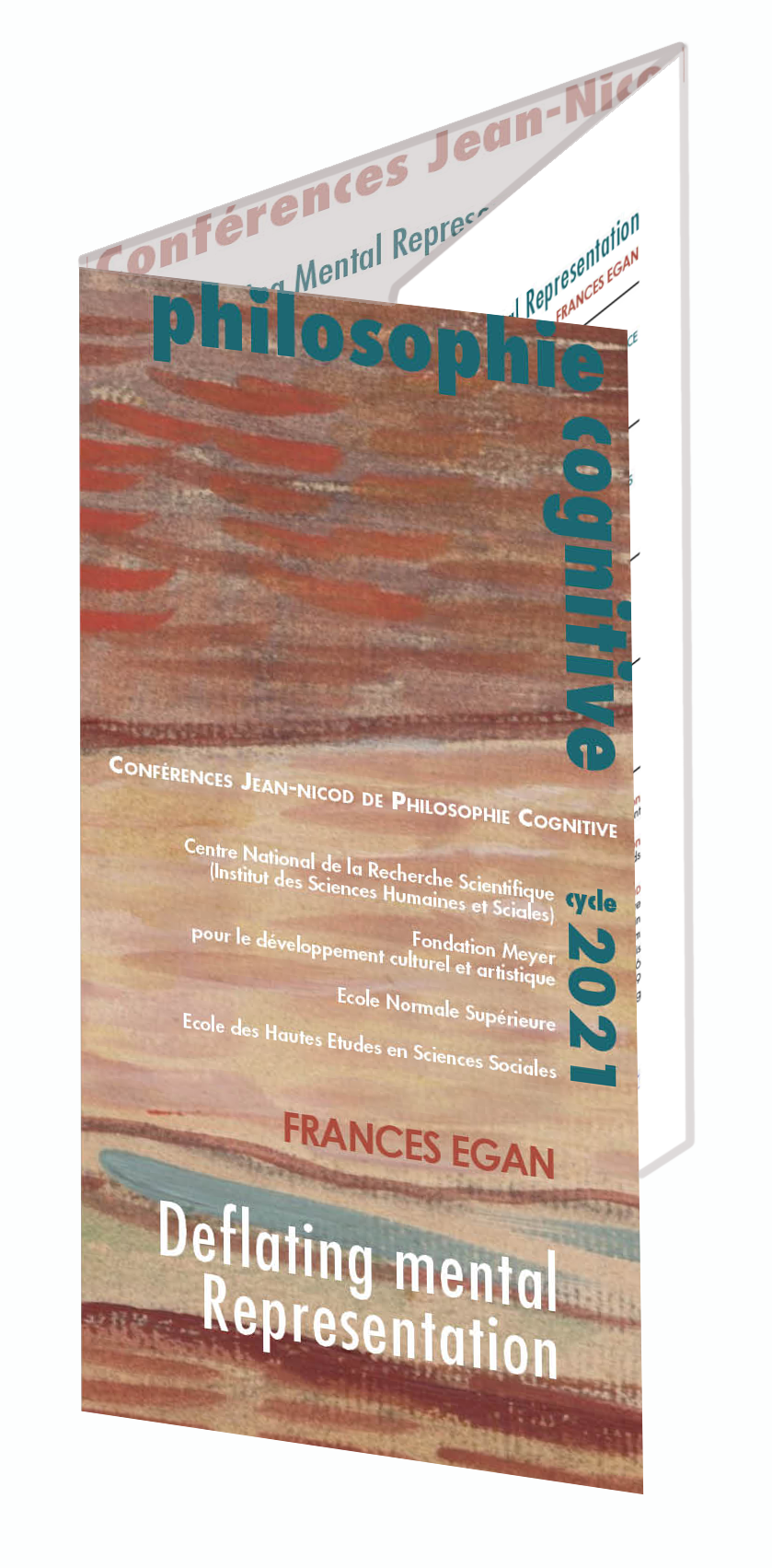
Representation in Computational Cognitive Science
Ecole normale supérieure, Salle Dussane, 45 rue d’Ulm, 75005 Paris
Conférences et Prix Jean-Nicod 2021

Frances Egan est née à Belfast, en Irlande du Nord, et a grandi au Canada. Elle a obtenu un BA et un MA en philosophie de l’Université du Manitoba et un doctorat en philosophie des sciences de l’Université de Western Ontario en 1988. Elle a enseigné toute sa carrière à l’université Rutgers, dans le New Jersey. Elle a été boursière de recherche au Center for Interdisciplinary Research (ZiF) de l’Université de Bielefeld en Allemagne, à l’Institute for Advanced Studies de l’Université hébraïque de Jérusalem et au Center for Mind, Brain, and Cognitive Evolution de l’Université de la Ruhr à Bochum en Allemagne. Elle a publié de nombreux articles sur des questions de philosophie de l’esprit et de psychologie et sur les fondements des sciences cognitives.

Philosophers of mind tend to hold one of two views about the existence of mental representations : they are either robustly realist about representations, taking them to have objective reality independent of theorists’ explanatory interests, or they embrace some form of eliminativism. I develop and defend a distinctive ‘third way’, arguing that attributions of content to mental states do not pick out an essential property of mental states, but instead serve various important pragmatic and explanatory purposes. Mental content attributions are best understood as pragmatically motivated glosses.
Representation in Computational Cognitive Science
Remise du Prix Jean-Nicod et cocktail après la conférence
Mardi 16 novembre - 14h30
Ecole normale supérieure, Salle Dussane, 45 rue d’Ulm, 75005 Paris
Much of cognitive neuroscience traffics in representation talk. Computational theories of vision, for example, posit structures that are described as representing edges in the world. Neurons are said to represent elements of their receptive fields. Despite the widespread use of representation talk in computational theorizing there is surprisingly little consensus about how such claims are to be understood. Is representation talk to be taken literally ? Is it just a useful fiction ? I sketch an account of the nature and function of representation in computational cognitive models that rejects both of these views while acknowledging that there is an element of truth in each. According to the deflationary view I defend, representational content serves several important pragmatic purposes, most notably connecting formal computational accounts to cognitive explananda with which we are pretheoretically familiar.
Naturalizing Intentionality : Theories and Glosses in Cognitive Science
Vendredi 19 novembre - 14h
Ecole normale supérieure, Salle des Actes, 45 rue d’Ulm, 75005 Paris
Computational cognitive science aims to provide a naturalistic foundation for theorizing about mental states. It can provide such a foundation only if it makes no essential reference to meaning or content or to intentional processes such as understanding. Philosophers typically assume that computational theories characterize mental states in intentional terms, and they have undertaken to demonstrate how to discharge the commitment to intentionality, by specifying non-intentional and non-semantic sufficient conditions for a mental state to have a determinate content. So far, this so-called naturalization project has not met with success. I argue that computational theories do not need naturalization since they make no essential appeal to meaning or content. Nonetheless, an adequate theory of cognition must maintain contact with the way that we see ourselves as intentional agents. I explain how glossing computational states in representational terms provides the crucial link between the mechanical processes posited in the computational theory and the manifest personal-level, rational capacities that the theory attempts to explain. I argue that in thus reconceiving the project of naturalizing the mind I sketch a more realistic alternative to the traditional naturalization project, one that computational theories are well-placed to satisfy.
Belief and its Linguistic Representation
Mardi 23 novembre - 14h
Ecole normale supérieure, Salle Dussane, 45 rue d’Ulm, 75005 Paris
In the last two lectures I argue that beliefs (lecture 3) and perceptual experiences (lecture 4) are not relations between subjects and mental representations of some sort. I argue that they are rather to be understood as monadic properties of subjects that are modelled by aspects of external reality. Beliefs, in particular, are modelled as linguistic objects that have syntax as well as content and truth conditions. That is to say, we gloss beliefs as being linguistic objects with such properties, though they do not actually have them. Rather, they have properties which have linguistic properties as images. This scheme for modelling beliefs in linguistic terms has important pragmatic virtues, especially enabling the prediction, regulation, and explanation/rationalization of behavior.
Perceptual Experience
Vendredi 26 novembre - 14h
Ecole normale supérieure, Salle des Actes, 45 rue d’Ulm, 75005 Paris
In the philosophy of perception, representationalism is the view that all phenomenological differences among mental states are representational differences, in other words, differences in content. In the final lecture I defend an alternative view which I call external sortalism, inspired by traditional adverbialism, and according to which experiences are not essentially representational. The central idea is that the external world serves as a model for sorting, conceptualizing, and reasoning surrogatively about perceptual experience. On external sortalism, contents once again are construed as a kind of gloss. We can retain what is attractive about representationalism, namely, that perceptual experiences can be evaluated for accuracy, without problematic commitment to the idea that they bear a substantive, representational relation to external objects and properties and that this relation determines the phenomenal character of experience.

Sélection bibliographique
- 2020 - “A Deflationary Account of Mental Representation” in What are Mental Representations ?, J. Smortchkova, K. Dolega, and T. Schlicht, (eds.), Oxford University Press, 26-53.
- 2017 - “Function-Theoretic Explanation and the Search for Neural Mechanisms,” in Explanation and Integration in Mind and Brain Science, David M. Kaplan (ed.), Oxford University Press, 145-163.
- 2014 - “How to Think about Mental Content,” Philosophical Studies 170, 115-135.
- 2012 - “Metaphysics and Computational Cognitive Science : Let’s Not Let the Tail Wag the Dog,” The Journal of Cognitive Science 13, 39-49.
- 2012 - “Representationalism,” in The Oxford Handbook of Philosophy of Cognitive Science, E. Margolis, R. Samuels, and S. Stich, eds., Oxford University Press, 250-72.
- 2003 - “Naturalistic Inquiry : Where Does Mental Representation Fit In ?,” in Chomsky and His Critics, L. Antony and N. Hornstein, eds., Blackwells, 89-104.
- 1995 - "Computation and Content," The Philosophical Review, 104, 181-203.
- 1992 - "Individualism, Computation, and Perceptual Content," Mind, 101, 443-459.

